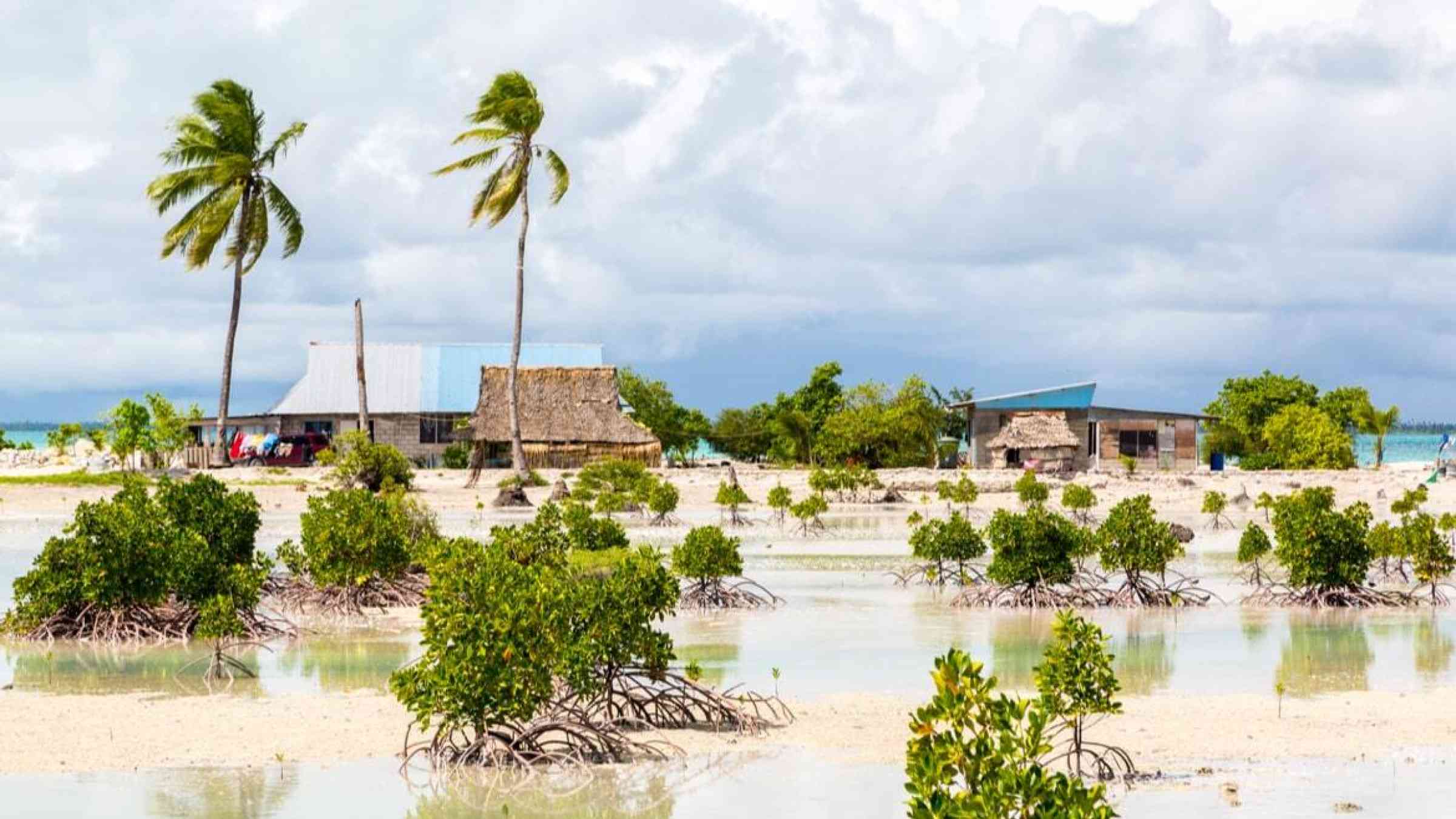Kiribati’s climate resilience set to get a boost with support from WHO and KOICA

The Government of Kiribati’s efforts to strengthen the national health system’s resilience to the impacts of climate change are receiving a boost thanks to a partnership between the Ministry of Health and Medical Services, the World Health Organization (WHO) and the Korea International Cooperation Agency (KOICA). With US$ 6 million in funding from KOICA, the four-year project, called Making Health Adaptation for the Future Resilient Islands - Kiribati Outer Islands for Climate Health Action: Te Mamauri KOICA, will enhance monitoring of the impacts of climate change on health and support strengthening of the health system on select outer islands to be more climate resilient.
The Ambassador of the Republic of Korea to Fiji, His Excellency Young-kyu Park, visited Kiribati this week to discuss the Te Mamauri KOICA project and other areas of development cooperation. KOICA Country Director, Mr Kapchae Ra, also accompanied Ambassador Park and took the opportunity to meet with the WHO Country Liaison Officer, Dr Wendy Snowdon, to discuss the project’s next steps.
“The partnership between the Government of Kiribati, KOICA, and WHO demonstrates our collective commitment to building climate resilience in Kiribati. Through the Te Mamauri project, we aim to contribute to the well-being of the communities in Kiribati and to serve as a model for other Pacific island nations facing similar challenges,” said Young-kyu Park.
With the world already experiencing a global average temperature that is 1.1°C above the pre-industrial baseline, Pacific island nations are being battered by climate hazards, such as king tides, cyclones, heat waves, droughts and increasing seawater intrusion. These crises are expected to become more frequent and severe as the world gets even warmer, leading to worsening food and water insecurity, and threatening people’s lives and livelihoods. Coastal and low-lying healthcare facilities, in particular, will be increasingly threatened by climate change-related hazards at a time when their services will be more in demand than ever before.
In Kiribati, the impacts of climate change on health are diverse and significant. For example, rising sea levels, increases in annual and seasonal temperatures, changes in rainfall patterns, and ocean acidification are some of the climate change impacts affecting health that have already been observed in Kiribati. Moreover, on 11 June 2022, the Kiribati Government declared a State of Disaster due to drought. The combination of exposure to these climatic hazards, limited capacity of the health system, and the difficulties of reaching far-flung outer island communities provide significant challenges in reducing climate change-related illnesses and deaths.
The Te Mamauri KOICA project aims to address critical gaps that are inhibiting the Kiribati health system's ability to effectively cope with the changing climate, focusing on 13 healthcare facilities on three outer islands -- 7 clinics in Abemama, 5 in Marakei and 1 in Tamana. The project will also enhance monitoring of the health impacts of climate change and raise awareness of the linkages between these issues.
“The health risks of climate change in Pacific island nations such as Kiribati are wide-ranging and impacts are already being felt, requiring diverse solutions and effective coordination across sectors and partners,” said Dr Mark Jacobs, Director of the Division of Pacific Technical Support and WHO Representative for the South Pacific. “With this project, we will work to implement a ‘whole of society’ approach, focusing on enhancing aspects of the health system to prevent disruptions of health service delivery during climate-related extreme events, as well as supporting efforts to ensure communities are armed with the necessary knowledge and tools to adapt to the health risks caused by climate change.”
“On behalf of the Government of Korea, I would like to congratulate the Government of Kiribati, especially the Ministry of Health, for taking this important initiative. Our hope is that this large investment would drive future support in adaptation work in the health sector and at the community levels,” said Kapchae Ra, Director of the KOICA Office in Fiji. “Climate change impacts the health of populations through numerous pathways. Delays in acting on climate change will affect mostly the disadvantaged and the vulnerable people.”